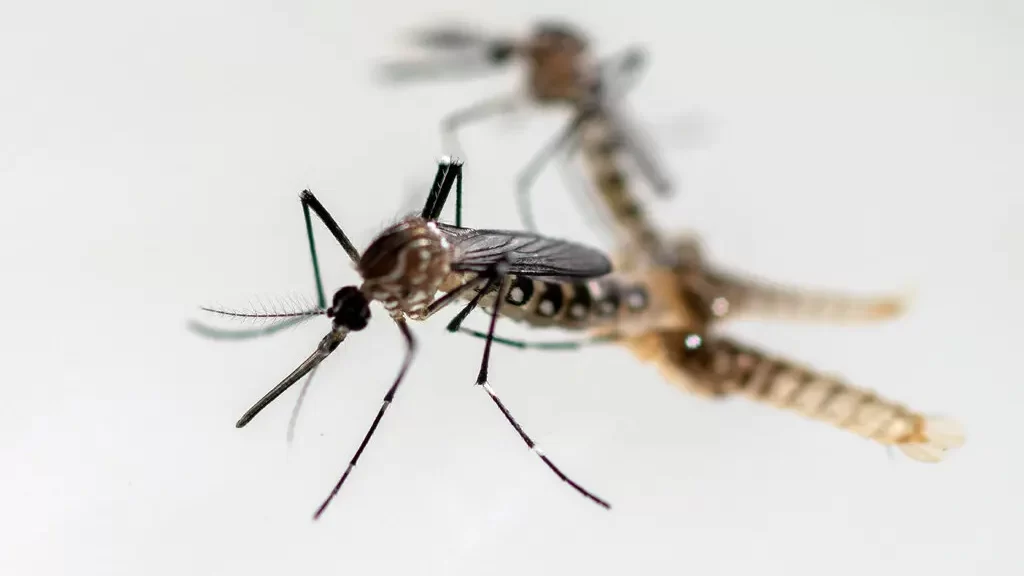A tragic and rare event has shaken New York, as a resident from Ulster County became the state’s first victim of Eastern Equine Encephalitis (EEE) in nearly a decade. The fatal case of this mosquito-borne virus prompted Governor Kathy Hochul to declare EEE an imminent public health threat. This incident marks a dangerous reminder of how even rare diseases can have devastating consequences.
EEE is a virus transmitted by mosquito bites, and while it remains uncommon, the consequences of infection can be severe with a fatality rate of around 30% in humans and the possibility of long-term neurological complications for survivors.
EEE is a significant public health concern, particularly for vulnerable groups such as children under 15 and adults over 50. This recent death highlights the need for heightened awareness and preventive measures, especially during peak mosquito season.
The Recent Spike in EEE Cases in the U.S.
This year, EEE has been reported in several states, including Massachusetts, New Jersey, Vermont, Rhode Island, and Wisconsin. As of mid-September, the Centers for Disease Control and Prevention (CDC) reported ten confirmed cases of the virus across the United States. The death in New York was the second fatal case this year, following the passing of a 41-year-old man in New Hampshire in August.
Although EEE is rare, its impact can be devastating. In 2019, the U.S. experienced an unusual spike in cases, with 38 people infected and 12 deaths reported—the largest outbreak in more than 50 years. This year’s rise in cases is a reminder that, although infrequent, EEE can return unexpectedly.
Increased Mosquito Activity in New York
The most alarming aspect of the current situation is the increase in mosquito activity in New York. In a news release, state health officials confirmed that mosquitoes carrying EEE have been found in 15 counties this year, a significant rise from the usual two or three counties. While the virus remains rare, the growing number of infected mosquitoes increases the risk of transmission.
Governor Hochul has taken immediate steps to address this health threat. State parks are providing visitors with mosquito repellent and posting signs to warn the public about the dangers of mosquito bites. Additionally, local health departments are consulting with officials on possibly limiting park hours and camping activities during peak mosquito activity times.
How to Prevent EEE and Protect Yourself
Eastern Equine Encephalitis primarily spreads through mosquito bites, making prevention essential. To protect yourself and your family, the following steps are recommended:
- Use Insect Repellent
Choose an EPA-approved repellent, especially during dawn and dusk when mosquitoes are most active.
- Wear Protective Clothing
Long-sleeved shirts and pants can provide a physical barrier against mosquito bites.
- Eliminate Standing Water
Mosquitoes breed in stagnant water. Be sure to empty any water that has collected in items like flower pots, buckets, or birdbaths.
- Use Window Screens
Ensure that your windows and doors are properly screened to prevent mosquitoes from entering your home.
Following these preventive measures can significantly reduce the risk of being bitten by mosquitoes carrying EEE or other mosquito-borne viruses.
The Impact of EEE on Vulnerable Populations

While anyone can be infected with EEE, certain groups are at higher risk for severe complications. Children under 15 and adults over 50 are particularly vulnerable to the virus. In severe cases, the virus can cause encephalitis, which is the swelling of the brain.
Symptoms of severe infection may include high fever, headache, seizures, and even coma. There is no specific treatment or vaccine for EEE, and in the most extreme cases, it can be fatal.
Survivors of EEE often face long-term neurological issues, which can include cognitive impairments, physical disabilities, and personality changes. The virus’s ability to cause permanent damage underscores the importance of prevention and public awareness.
Response from New York State and Public Health Officials
To combat the spread of EEE, New York officials are focusing on public education and preventive action. Alongside the provision of insect repellent and public awareness campaigns, the New York Department of Environmental Conservation has also stepped up by posting signs at popular trailheads and other outdoor sites to inform visitors about the risk of mosquito bites.
State health commissioner Dr. James McDonald emphasized the importance of these measures, saying, “Mosquitoes, once a nuisance, are now a threat.” He urged all residents to take the threat seriously by using repellents, wearing long sleeves, and reducing standing water near their homes.
The fight against EEE will continue until temperatures drop enough to freeze standing water, which is expected around mid-October in many parts of New York. Until then, mosquitoes will remain a health hazard, and officials will continue to push for preventive measures across the state.
The Broader Threat of Mosquito-Borne Illnesses
Eastern Equine Encephalitis is not the only mosquito-borne illness to watch out for. As of mid-September, the CDC reported 659 cases of West Nile virus in the U.S. While West Nile is much more common than EEE, it is generally less deadly. However, it still poses a serious health risk, especially for older adults and those with weakened immune systems.
In addition to humans, EEE also affects animals. Horses are particularly susceptible to the virus, with a mortality rate as high as 90%. This year, several horses across New York have died from EEE, underscoring the widespread impact of the virus on both human and animal populations.
Stay Safe and Vigilant
As New York grapples with the reemergence of Eastern Equine Encephalitis, residents are urged to remain vigilant and take precautions to avoid mosquito bites. The tragic death in Ulster County serves as a stark reminder of the seriousness of this virus, even though it is rare.
By using insect repellent, wearing protective clothing, and eliminating standing water around your home, you can help protect yourself and your loved ones from this dangerous mosquito-borne illness. With awareness and preventive actions, we can minimize the impact of EEE and stay safe during this mosquito season.





